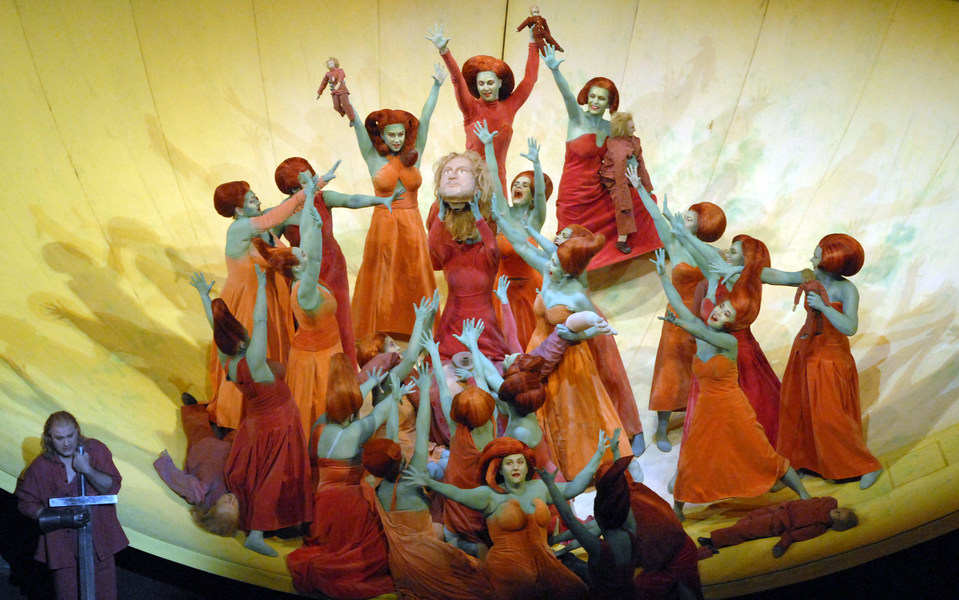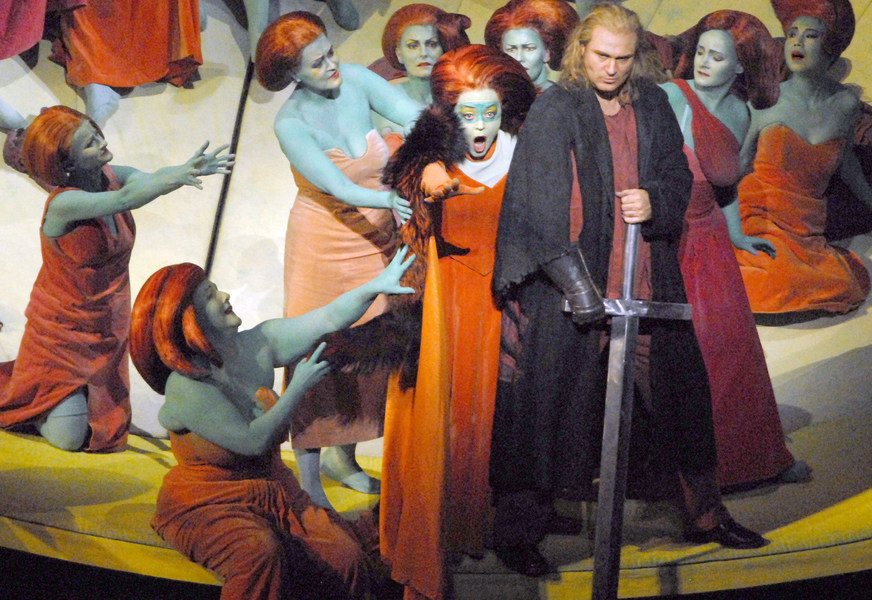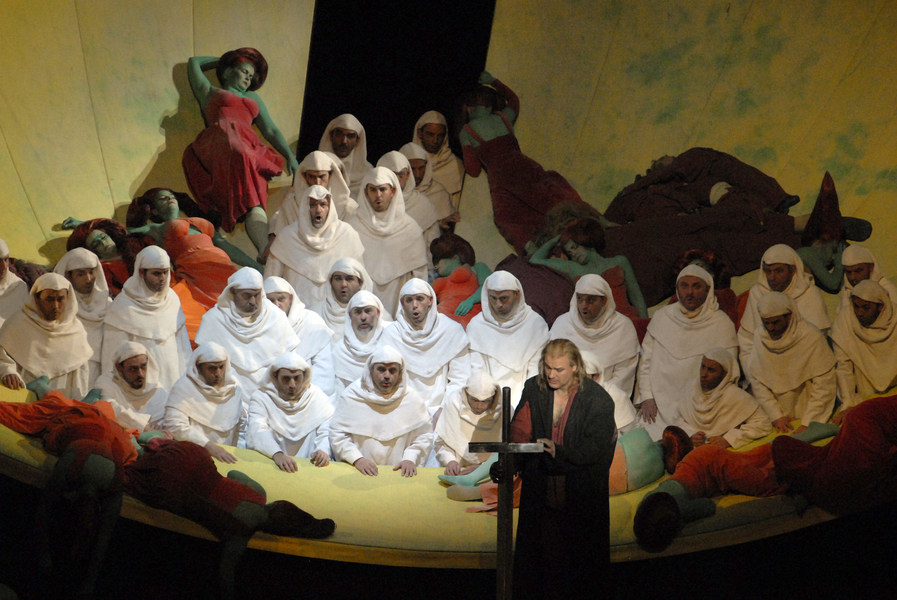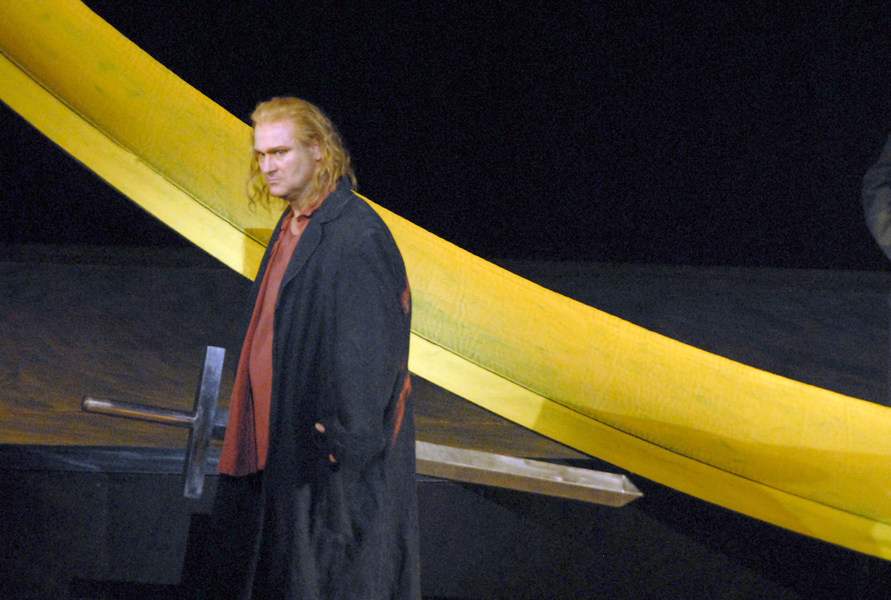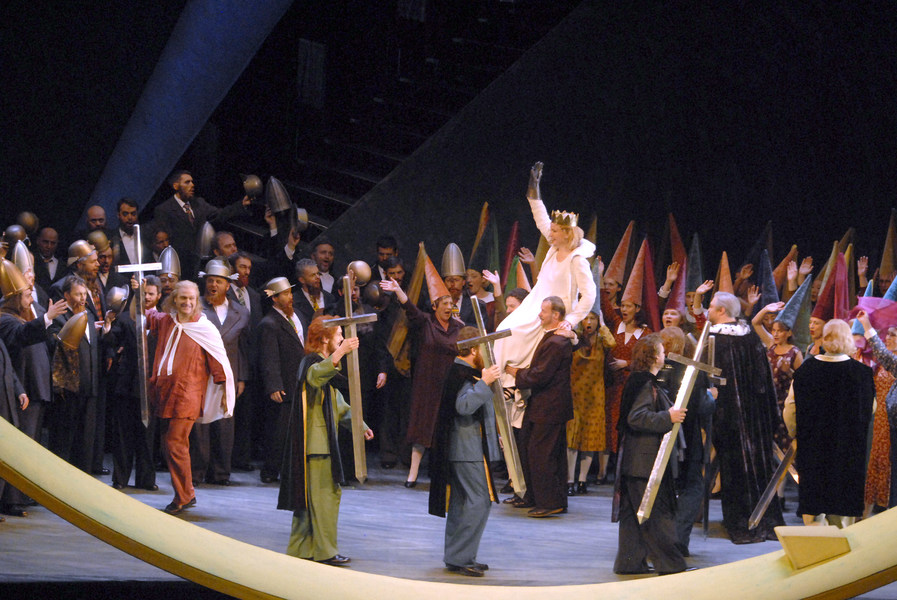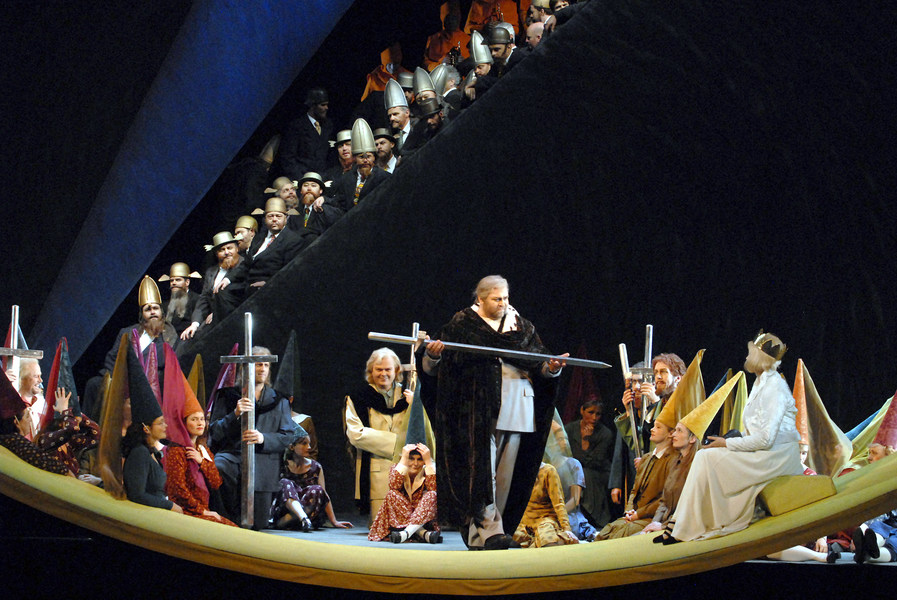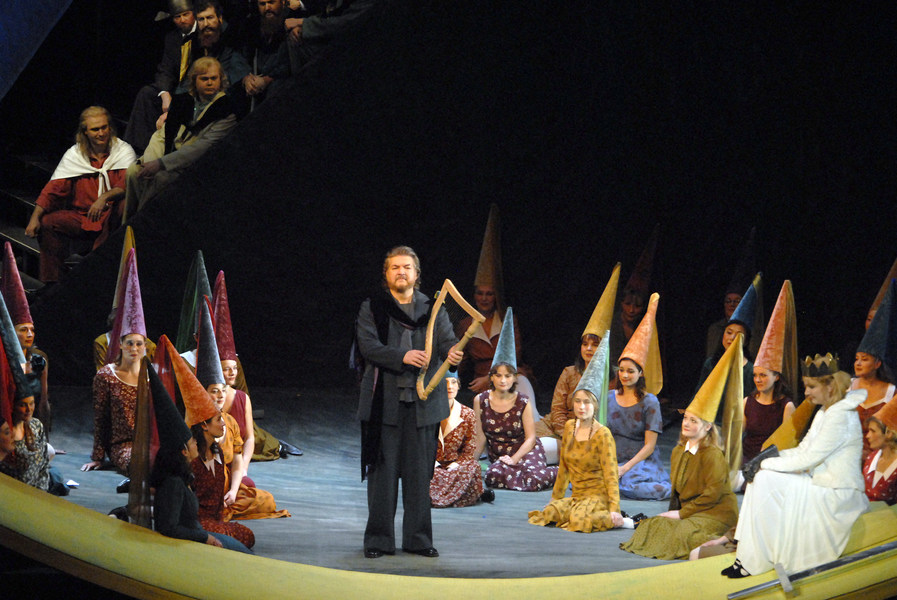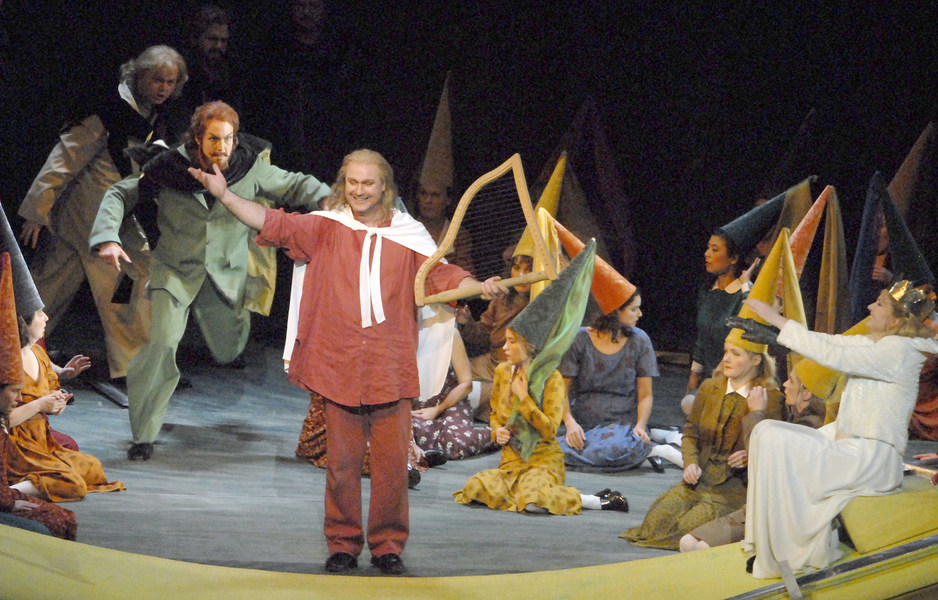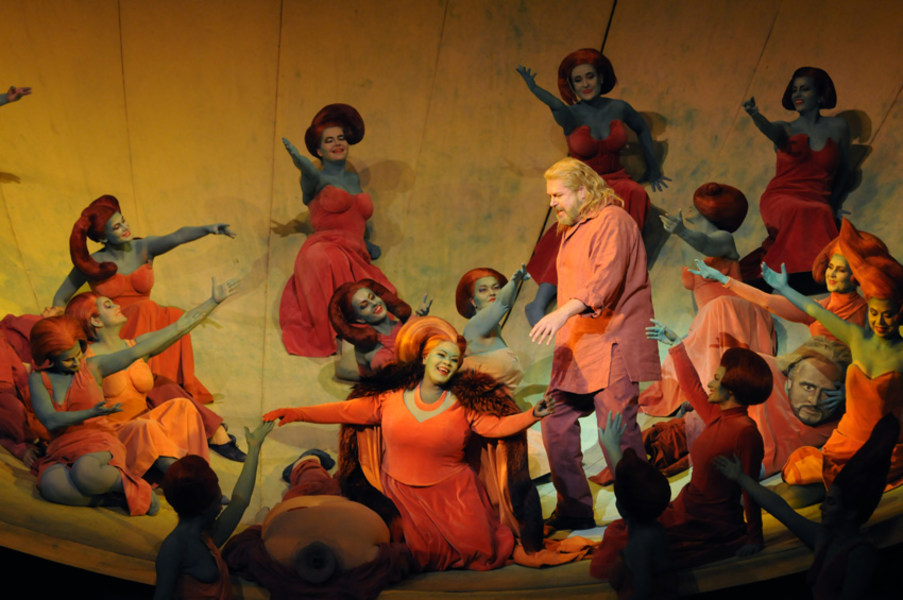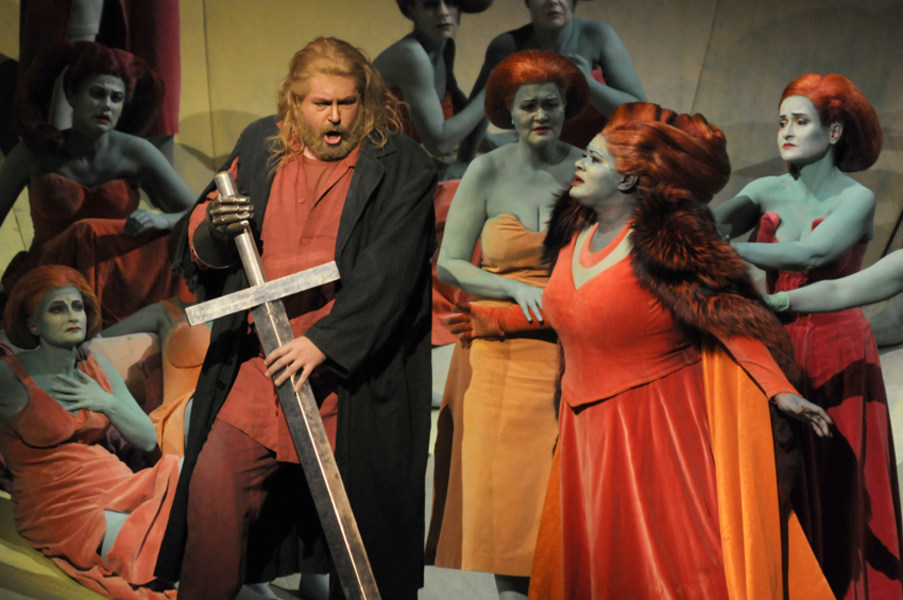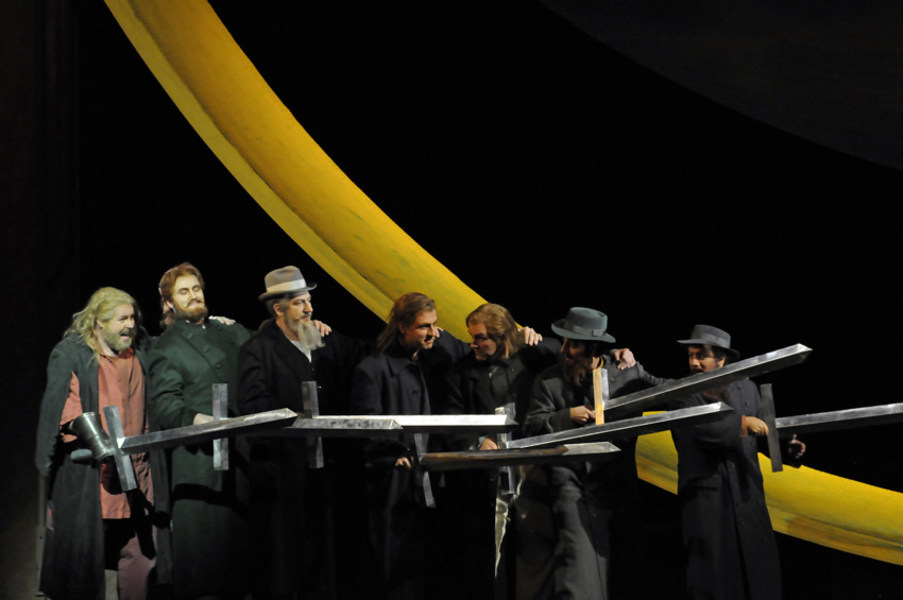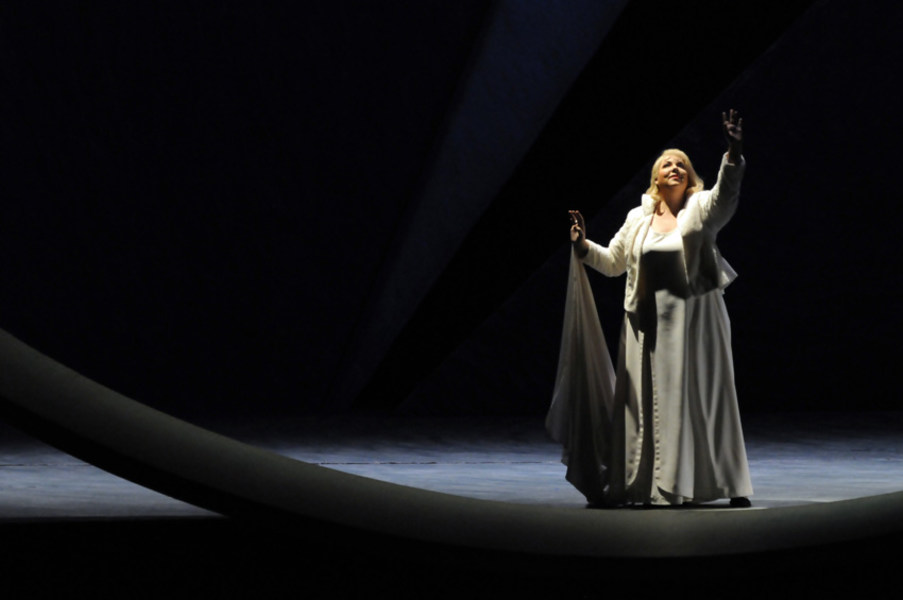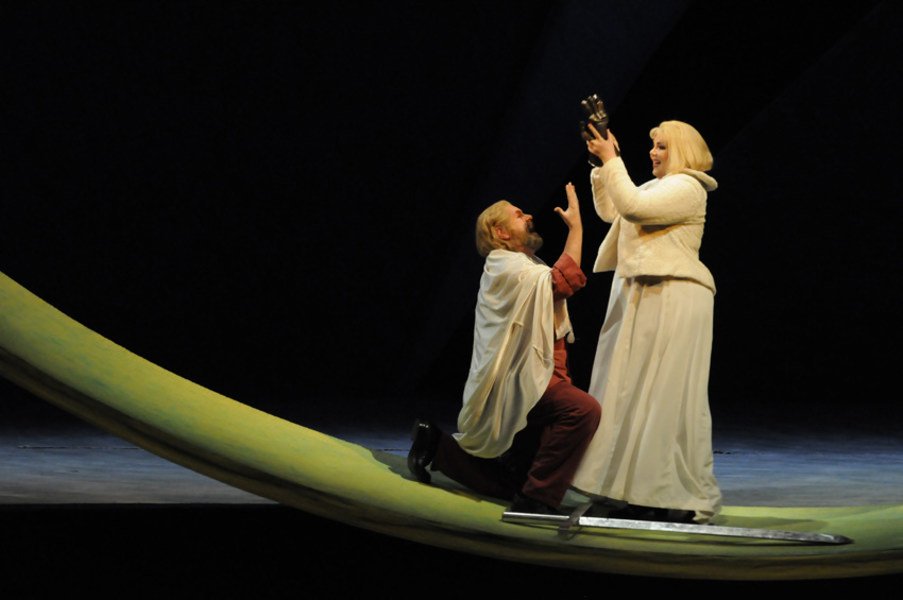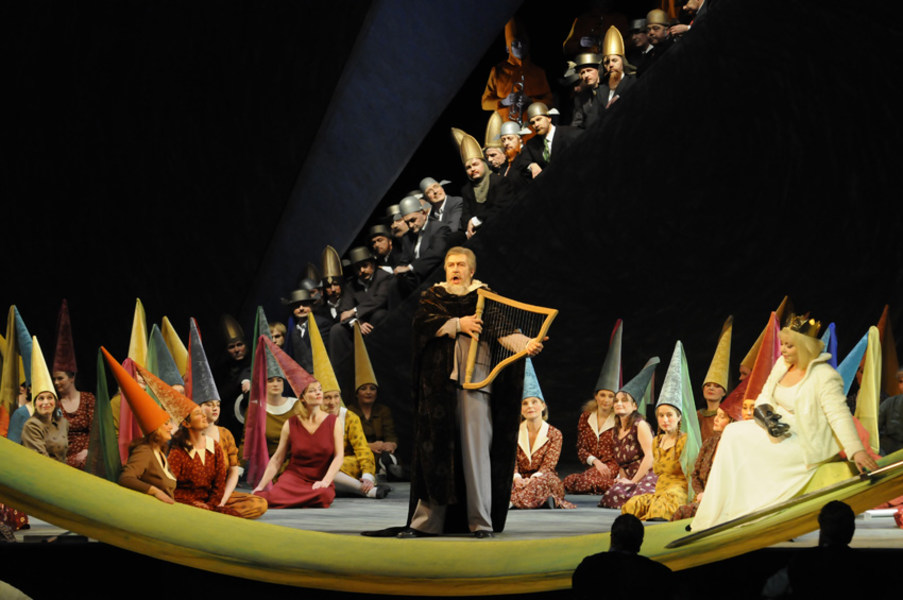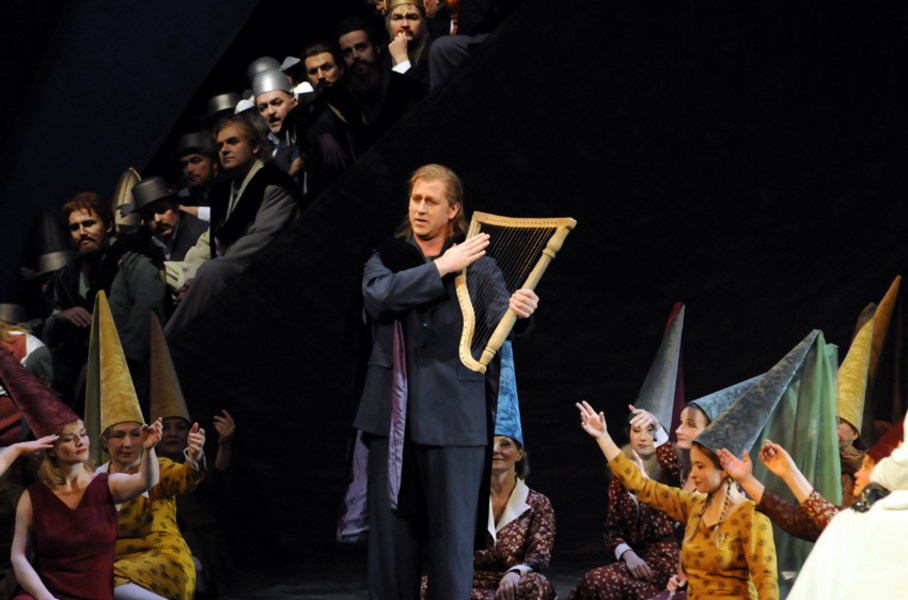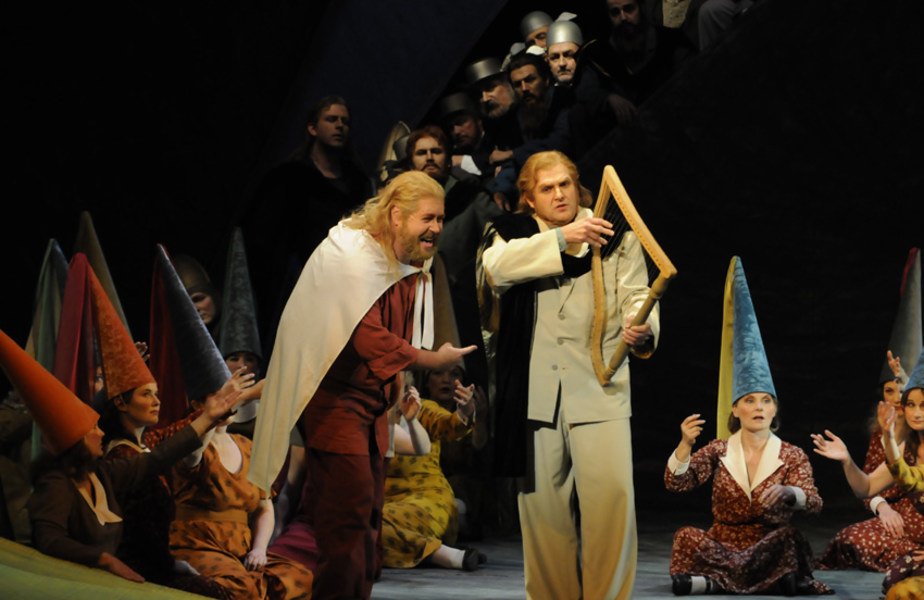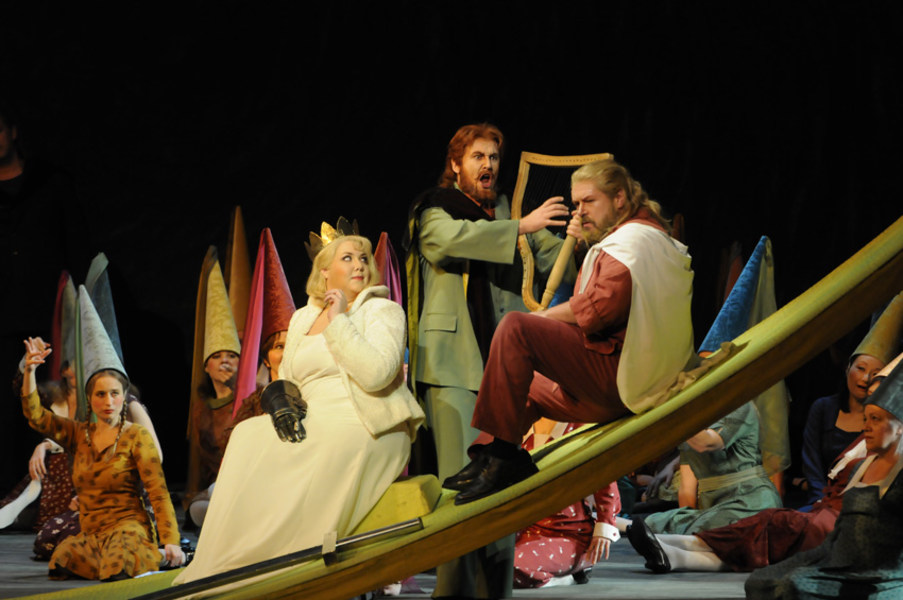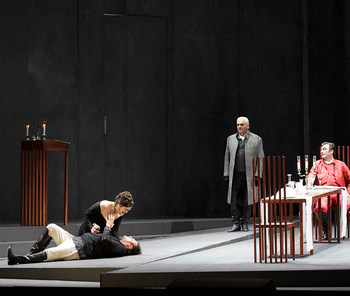Richard Wagner
Premiere 29. June 1997
Performed in German with supertitles
Piece-Info
Richard Wagner was Royal Kapellmeister in Dresden when he wrote his romantic opera »Tannhäuser and the Minnesingers’ Contest at the Wartburg« in 1845. At the heart of the story is the singer Tannhäuser, who seeks carnal pleasure and sensuality from Venus, the Goddess of Love, and yet quickly longs to return to the world of men. But as soon as he has broken with Venus, he is no longer able to fit in with the expectations of polite society. There is a scandal when, taking part in a song contest on the theme of love, he sings the praises of uninhibited lust. Tannhäuser is sent to Rome to seek atonement. Director Peter Konwitschny has staged Richard Wagner’s opera as a sensuously comedic lesson about non-conformity, romantic yearning, desire and lost utopias.
Act 1
Tannhäuser has retired from the Wartburg to the Venusberg. However, his dream of eternal pleasure in the arms of the goddess of love has become a nightmare from which he must escape. Venus uses all her powers to keep her lover. Tannhäuser risks everything to gain his release: by naming the Virgin Mary, he breaks Venus’ spell. In the valley of the Wartburg, a young shepherd is playing a shawm and singing to awakening spring. A group of pilgrims on their way to Rome passes by. Tannhäuser joins in their prayer. A hunting party appears: the Landgrave Hermann with a group of minnesingers. Wolfram von Eschenbach recognises his friend whom he believed dead, and reassures the other knights who mistrust him. Tannhäuser does not wish to return to the Wartburg. Only when Wolfram reminds him of Elisabeth, the Landgrave’s niece, and tells him how she is affected by Tannhäuser’s songs does he decide to return. In high spirits, the knights lead the long lost singer back to the Wartburg in triumphal procession.
Act 2
Elisabeth greets the Singer’s Hall in Wartburg Castle, her first visit to the Hall since Tannhäuser’s disappearance. Wolfram enters with Tannhäuser, and Elisabeth, at first shy, but then with increasing passion, declares her love to Tannhäuser. Wolfram, who also loves Elisabeth, gives up all hope and renounces any expectation of his wishes being fulfilled. Tannhäuser’s return is celebrated with great festivities. The Landgrave announces the theme of the song contest as love. The winner may choose the prize himself which Elisabeth will present. Everyone present is aware of how the contest will end: Tannhäuser will win, ask for Elisabeth’s hand and she will accept. Wolfram von Eschenbach, Walther von der Vogelweide and Biterolf accordingly praise the high ideals of the Wartburg company – pure and sacrificing courtly love. Everyone is horrified to hear Tannhäuser’s songs in which he claims that true love is only to be found in sensual pleasure. Finally, he is even carried away in an outburst in praise of Venus and admits to having been inside the Venusberg. The knights are outraged and want to kill Tannhäuser for breaking this taboo. Elisabeth places herself in front of him as protection and asks the men to give Tannhäuser the opportunity to seek atonement. The Landgrave suggests Tannhäuser join the pilgrims and seek absolution for his sins from the Pope. Tannhäuser leaves.
Act 3
In the valley of the Wartburg. Elisabeth is waiting for the pilgrims to return. The pilgrims pass by but without Tannhäuser. Elisabeth asks the Virgin Mary to take her life as atonement for Tannhäuser’s sins. Wolfram is with his beloved when she dies. The utterly broken Tannhäuser approaches. He tells Wolfram of his suffering on the pilgrimage to Rome and of the Pope’s reaction. The Pope has declared that the likelihood of Tannhäuser receiving atonement for his sins is as remote as the Pope’s staff sprouting leaves. As there is nowhere else to live in this world, he can now only return to the Venusberg. Wolfram tries to deter him but Tannhäuser calls upon Venus. She appears and wishes to take this unfaithful man back. Only when Wolfram calls out Elisabeth’s name does Tannhäuser pause. He sinks down dead beside her body. At this moment, overwhelming news arrives: the Pope’s staff has sprouted leaves. Did he not damn Tannhäuser for ever in the arrogant assumption of his own infallibly because God speaks through him? Obviously, God himself has overruled the highest authority in this world by working this wonder. »High above the world is God, and his mercy knows no scorn.«
Gallery
Tannhäuser

